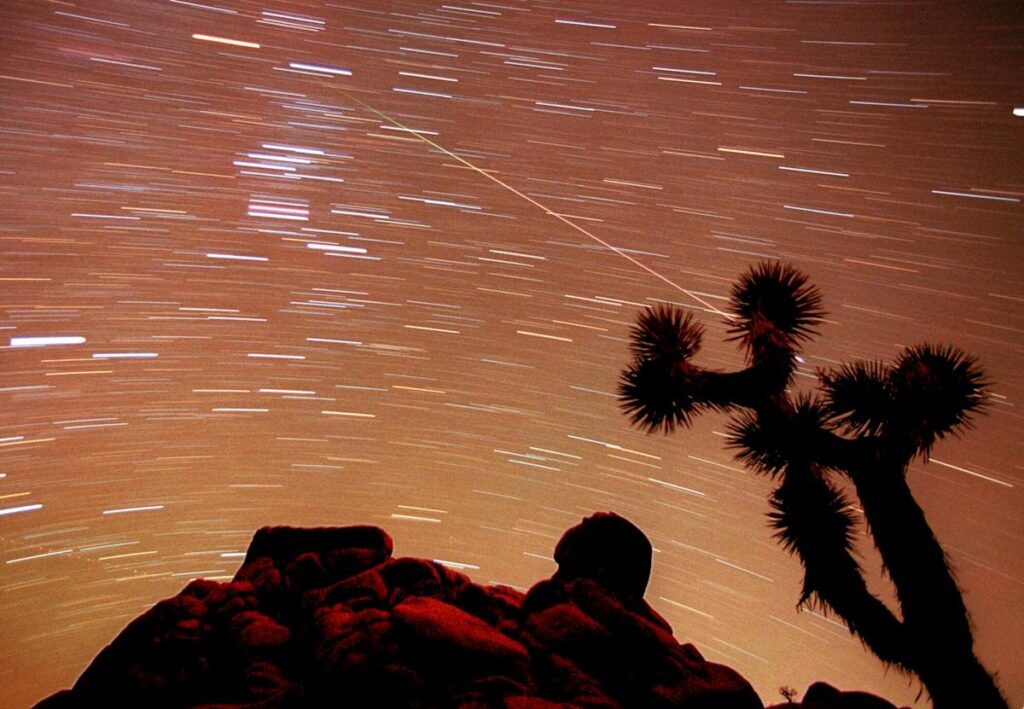The situation on the Colorado River — the water supply for 40 million Westerners and half of all Californians — is dire. The waterway’s flows have shrunk 20 percent since the turn of the century and climate scientists say it’s not unreasonable to think that another 20 percent could be lost in the coming decades.
To cities, farmers, tribes and industries from Wyoming to Mexico — but especially in legally vulnerable Arizona — that looks like pain.
To the Los Angeles-based water company Cadiz Inc., that looks like opportunity.
After trying and failing for more than two decades to pump ancient groundwater from beneath the Mojave Desert and sell it to Southern California water districts, the controversial company has set its sights on new customers over the border in the Grand Canyon State.
“We are hopeful that our projects can support the Bureau’s efforts to manage Colorado River resources and Lake Mead,” Cadiz CEO Susan Kennedy (a former chief of staff to California Gov. Arnold Schwarzenegger) said on Wednesday. Her pitch: There’s up to 2.5 million acre-feet of untapped water in the Mojave Desert her company can move and store across the arid Southwest.
In California, the project is a perpetual political football, opposed by the likes of the late Sen. Dianne Feinstein, who was broadly a champion of water projects but was concerned it would harm the desert environment. One former state lawmaker compared the dispute to “Hatfield and McCoy, Palestinians and the Jews.” Now, Trump is getting in the mix.
On Monday, the Interior Department announced plans to sign a memorandum of understanding with the latest incarnation of the project, called the Mojave Groundwater Bank, touting it as “an important tool to improve drought resiliency in the Colorado River Basin” though recognizing that it is only in “early development.” And on Tuesday, the Trump administration official leading Colorado River negotiations for the federal government suggested to water power players in Arizona that they consider the project.
“The Cadiz sponsors think they have a lot of groundwater that could go somewhere. If it turns out they are right, would Arizona want to have a conversation about that water?” Scott Cameron, an acting assistant secretary at the Interior Department, asked at a meeting of a state water committee.
For the Trump administration, trumpeting Cadiz is a chance to show it’s doing something about the Colorado River despite the seven Western states remaining sharply divided over how to divvy up water cuts after current rules expire in 2026.
For Cadiz, the endorsement is a political lifeline after decades of in-state opposition — and a return to more favorable treatment under the Trump administration even after the company dumped a lobbying firm with powerful Trump ties, Brownstein Hyatt Farber Schreck, after Biden took office.
Under the Biden administration, Cadiz rebranded itself as an environmental justice-focused company seeking to fill accessibility gaps in economically depressed regions of the state. Kennedy even expressed concern after the November election that a new Trump administration would push back on its plans to repurpose 80 miles of steel pipe it purchased from the terminated Keystone XL oil pipeline to transport water.
Opponents of the project, including conservation groups who say it could harm sensitive desert ecosystems, still see it as the same old concept.
“It’s not surprising that an administration that wasted over 2 billion gallons of water under the guise of wildfire response thinks it’s a good idea to overdraft a desert aquifer that supports federally protected land,” said Neal Desai, the senior program director for the National Parks Conservation Association.
It’s likely the project will draw some interest within Arizona, especially among the lowest-priority water users who are desperate to protect their Colorado River supplies as the seven states that share the waterway negotiate over new rules to govern the river. The state has already committed to cutting more than a quarter of its use from the river, and any cuts beyond that will fall first on Central Arizona cities and tribes unless alternative deals can be reached.
But it will take a lot more than interest to make a deal happen.
Cadiz has run into opposition from California state lawmakers and the State Lands Commission, which after urging from state Sen. Monique Limón and Assemblymember Isaac Bryan told Kennedy in a letter last week not to start construction on the pipeline that would transfer water without agency buy-in, which could take a year to two years.
Crucially, Cadiz would almost certainly need buy-in from the long-skeptical Metropolitan Water District of Southern California, because any deals with Arizona would likely include Metropolitan taking Cadiz’s water and leaving a portion of its Colorado River water in Lake Mead in exchange. Many of the hurdles Metropolitan has cited in the past, from water quality concerns to operational challenges, remain — and the district’s board of directors also includes two prominent California environmentalists.
Cadiz has yet to formally approach Metropolitan about its new plan. “Metropolitan’s board does not currently have any pending items from Cadiz to consider and none are planned for the foreseeable future,” Metropolitan spokesperson Rebecca Kimitch said by email.
The last time the board reviewed anything from Cadiz was in 2002, when it voted to reject the project, she said. But, amid high-stakes Colorado River negotiations, it might be hard for Metropolitan to say no to a request that could help ease the path to a deal for another state.
Like this content? Consider signing up for POLITICO’s California Climate newsletter.
Read the full article here


